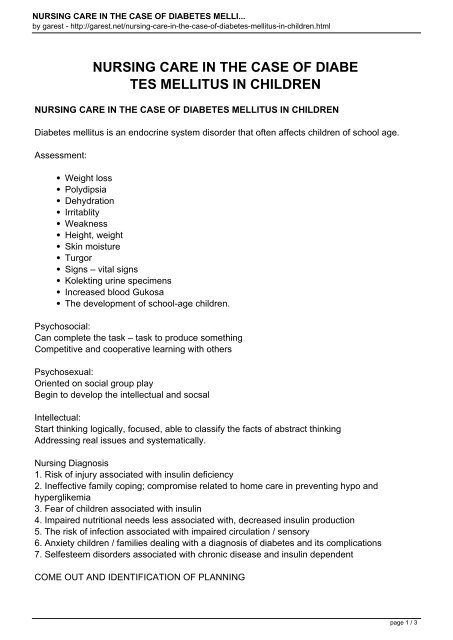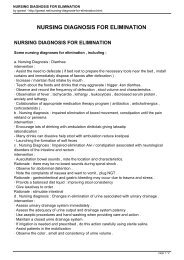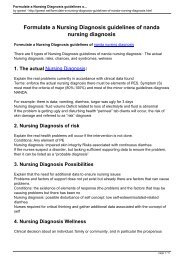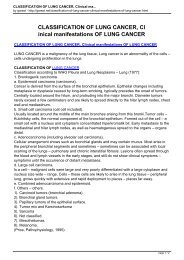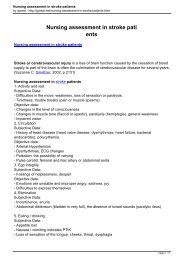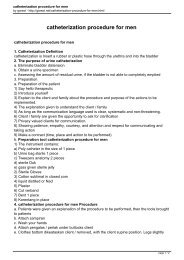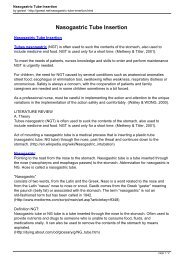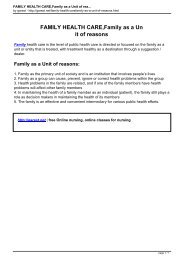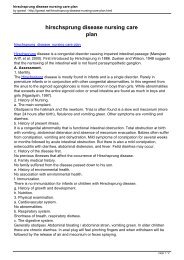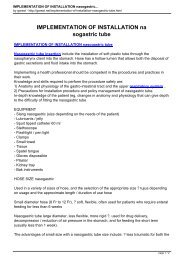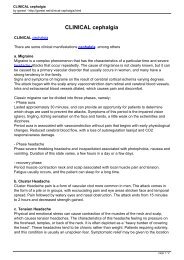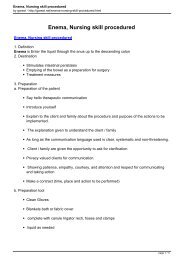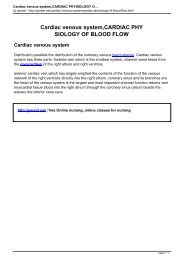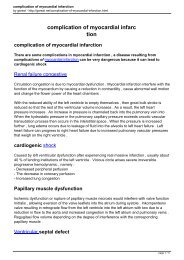NURSING CARE IN THE CASE OF DIABE TES MELLITUS IN CHILDREN
You also want an ePaper? Increase the reach of your titles
YUMPU automatically turns print PDFs into web optimized ePapers that Google loves.
<strong>NURS<strong>IN</strong>G</strong> <strong>CARE</strong> <strong>IN</strong> <strong>THE</strong> <strong>CASE</strong> <strong>OF</strong> <strong>DIABE</strong><strong>TES</strong> MELLI...<br />
by garest - http://garest.net/nursing-care-in-the-case-of-diabetes-mellitus-in-children.html<br />
<strong>NURS<strong>IN</strong>G</strong> <strong>CARE</strong> <strong>IN</strong> <strong>THE</strong> <strong>CASE</strong> <strong>OF</strong> <strong>DIABE</strong><br />
<strong>TES</strong> <strong>MELLITUS</strong> <strong>IN</strong> <strong>CHILDREN</strong><br />
<strong>NURS<strong>IN</strong>G</strong> <strong>CARE</strong> <strong>IN</strong> <strong>THE</strong> <strong>CASE</strong> <strong>OF</strong> <strong>DIABE</strong><strong>TES</strong> <strong>MELLITUS</strong> <strong>IN</strong> <strong>CHILDREN</strong><br />
Diabetes mellitus is an endocrine system disorder that often affects children of school age.<br />
Assessment:<br />
Weight loss<br />
Polydipsia<br />
Dehydration<br />
Irritablity<br />
Weakness<br />
Height, weight<br />
Skin moisture<br />
Turgor<br />
Signs – vital signs<br />
Kolekting urine specimens<br />
Increased blood Gukosa<br />
The development of school-age children.<br />
Psychosocial:<br />
Can complete the task – task to produce something<br />
Competitive and cooperative learning with others<br />
Psychosexual:<br />
Oriented on social group play<br />
Begin to develop the intellectual and socsal<br />
Intellectual:<br />
Start thinking logically, focused, able to classify the facts of abstract thinking<br />
Addressing real issues and systematically.<br />
Nursing Diagnosis<br />
1. Risk of injury associated with insulin deficiency<br />
2. Ineffective family coping; compromise related to home care in preventing hypo and<br />
hyperglikemia<br />
3. Fear of children associated with insulin<br />
4. Impaired nutritional needs less associated with, decreased insulin production<br />
5. The risk of infection associated with impaired circulation / sensory<br />
6. Anxiety children / families dealing with a diagnosis of diabetes and its complications<br />
7. Selfesteem disorders associated with chronic disease and insulin dependent<br />
COME OUT AND IDENTIFICATION <strong>OF</strong> PLANN<strong>IN</strong>G<br />
page 1 / 3
<strong>NURS<strong>IN</strong>G</strong> <strong>CARE</strong> <strong>IN</strong> <strong>THE</strong> <strong>CASE</strong> <strong>OF</strong> <strong>DIABE</strong><strong>TES</strong> MELLI...<br />
by garest - http://garest.net/nursing-care-in-the-case-of-diabetes-mellitus-in-children.html<br />
Outline goals are:<br />
Prevent injury and infection<br />
Eliminate fear as insulin<br />
Maintenance of adequate nutrition<br />
Positive self-concept<br />
Do not depend<br />
For families keep children do not happen hypoglycemia, insulin nutrition for children<br />
For a child to learn to take care of diabetes in order to avoid complications.<br />
Prevent injury<br />
Monitoring blood glucose levels, 2 times a day, before breakfast and dinner<br />
Expresikan help feeling frightened when blood glucose test done (finger stick)<br />
Phase schools; Industry ? interested in the information that the child cooperative<br />
Monitor signs – signs of hyperglycemia<br />
Improving family coping in the management of hypoglycemia and hyperglikemia<br />
Education / HE about the sign – a sign of hypoglycemia and hyperglikemia and how treatment<br />
necessary to overcome<br />
When handling blood glucose If a child gets therapy glucagon or dextrose from doctors, teach<br />
how intra muscular administration of glucagon<br />
Encourage children to bring lunch and eat if there are signs – signs of hypoglycemia (hers<br />
complex carbohydrates such as cake, crakers, bread, beans, etc.)<br />
Note the pattern of occurrence of hypoglycemia and schedule planning decisions in order to<br />
avoid hypoglycemia<br />
When the children got sick (heat, infection, vomiting, nausea, not eating) call the doctor<br />
Teach a way of giving insulin subcutan<br />
Ensuring proper and inadequate nutrition<br />
Involving children in the nutrition plan<br />
Helping children to become involved in the diet<br />
If the child will be late for a meal siamg complex carbohydrates are encouraged to bring food<br />
Encourage your child to eat at school how to deal with environmental and social<br />
Prevent infection and skin damage<br />
Teach how to observe, determine skin every day (after a shower) typically are susceptible to<br />
damage in the folds – folds (axilla, groin)<br />
Note the use of good shoes<br />
The second observation for chapped feet, cut nails appropriate line, use clean socks and do<br />
not use the foot pengalas<br />
Infection often is urinary system and the respiratory system are teaching recognize signs – a<br />
sign of urinary infection; itchy, burning sensation in the urinary system in the event of medical<br />
Reducing the anxiety of children and families<br />
Suggest that the children and families to express their feelings (guilt, anger, rejection)<br />
Encourage a lot of reading to increase understanding of the disease<br />
Give honest and clear information<br />
page 2 / 3
Powered by TCPDF (www.tcpdf.org)<br />
<strong>NURS<strong>IN</strong>G</strong> <strong>CARE</strong> <strong>IN</strong> <strong>THE</strong> <strong>CASE</strong> <strong>OF</strong> <strong>DIABE</strong><strong>TES</strong> MELLI...<br />
by garest - http://garest.net/nursing-care-in-the-case-of-diabetes-mellitus-in-children.html<br />
Improving self-care and self-esteem in a positive<br />
Encourage your child to visit each other among the sick<br />
Explaining that a diabetic child can do the same activities as other children<br />
EVALUATION<br />
Children do not receive injury<br />
Children and families can demonstrate ways of handling hypoglycemia and hyperglikemia<br />
Children and families can show you how insulin<br />
Children and families can show the required nutrients<br />
Children do not get damaged skin or infection<br />
Children and families can demonstrate long-term care home<br />
Children and families can demonstrate a positive attitude in all circumstances<br />
http://garest.net | free Online nursing, online classes for nursing<br />
page 3 / 3


